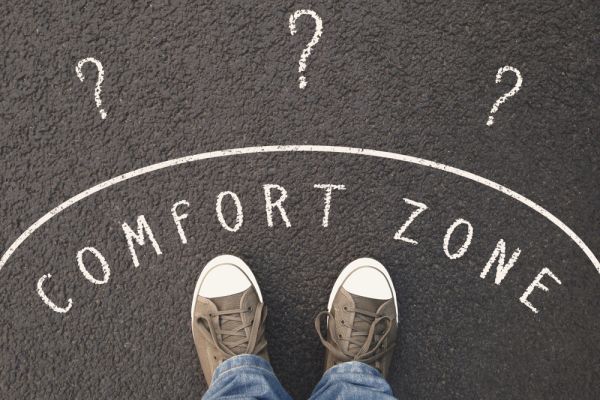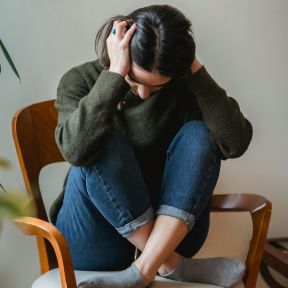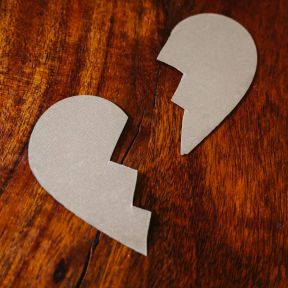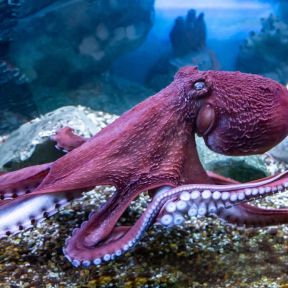Natural Approaches to Anxiety
Anxiety requires active treatment, because the disorder itself can have enduring effects on brain function. Apart from the physical discomfort and the prison of negativity anxiety brings, the longer anxiety endures, the more likely it is to become a chronic state. Nevertheless, there are many ways to treat anxiety, and some of the most effective do not require a prescription or medical intervention of any kind. One of the many ironies of anxiety is that while it whips mind and body into a state of readiness for action—all the tension you feel— it tends to render people incapable of doing anything, instead seeking safety in avoidance. But taking small steps forward in spite of such feelings creates a pathway out of the problem. It is possible to manage anxiety, rather than be managed by it, usually by learning some new patterns of thinking and doing, and even by exploring new ways of doing nothing, aka relaxation strategies.
On This Page
- Does anxiety always require treatment?
- Is it necessary to treat anxiety with drugs?
- Can anxiety be treated naturally?
- How do holistic doctors treat anxiety?
- Does exercise help anxiety?
- What are the best exercises for curbing anxiety?
- Why does deep-breathing relieve anxiety?
- Does relaxation training help relieve anxiety?
- Can diet relieve anxiety?
- Are there foods it’s advisable to avoid in anxiety?
- Are there vitamins or supplements that help against anxiety?
- Can herbal remedies help in anxiety?
- Does CBD oil help relieve anxiety?
- Does meditation relieve anxiety?
- Is massage helpful for anxiety?
- Does acupuncture help against anxiety?
- Can yoga have benefits against anxiety?
- Does social activity matter for relieving anxiety?
- Can nature heal anxiety?
When worry consumes a great deal of mental space without leading to problem resolution or begins to constrict activities, it needs to be addressed. That doesn’t mean it requires formal treatment. Some of the most effective approaches to anxiety involve shifts of mindset and behavior that individuals can accomplish on their own, although they might more easily be mastered with the guidance of a therapist. Anxiety is uncomfortable—remember, it’s designed to commandeer attention to possible danger and maintain a state of readiness for action—and that discomfort can lead people to such maladaptive ways of coping as substance use, including alcohol abuse. Anxiety that is not addressed tends to become well-entrenched and chronic.
Although anxiety is in many ways a poorly understood disorder, there is recognition that it involves many body systems. That makes a powerful case for measures, most of them deceptively simple, that target one or more facets of the disorder. For example, anxiety’s (false) alarm of danger is mediated in part by the sympathetic nervous system pitched into high gear by adrenaline. Spending five or ten minutes deep-breathing, even during a panic attack, can counter the sympathetic activation and restore some calm, viscerally and psychologically.
Too, studies consistently show that, by virtue of biology or early life experience, people differ in the degree to which distressing experiences can stress or overwhelm individual resources, disrupt functioning, and result in the system-wide state of arousal known as anxiety. From learning to tolerate negative feelings to taking a brisk walk in the park, there is an array of strategies that effectively interrupts or blunts the myriad effects of stress, and they can literally foster the growth of new nerve pathways that restore the ability to function.
In some ways, the best treatments for anxiety are natural. Therapy, which targets mindset, behavior, and thinking skills, is natural in that it involves no use of chemical agents—yet it has power to change brain function. Specific lifestyle changes can similarly alter brain reactivity patterns that lead to anxiety. Relaxation techniques can subdue anxiety from yet another direction.
Inflammation plays a significant role in bringing on and perpetuating anxiety. Many studies show that anxious patients have elevated levels of pro-inflammatory compounds circulating in their blood. Inflammation is part of the body’s natural response to danger and injury, and there are many ways of curbing the processes of inflammation naturally, from diet and exercise to social contact and sitting still with one’s fears instead of running from them.
Anxiety is a holistic disorder, a complex condition that afflicts the whole person, manifesting in many disturbances of mind and body function. It rivets attention as much as it impedes concentration. It fixates thinking on possible negative outcomes as much as it robs memory. It brings on muscle tension as much as it shortens breath. There is an array of measures that can counter the multiple ways anxiety disrupts so many systems of body and mind. Addressing cognitive distortions, retreat from experience, and exhaustion; providing a nutritious diet; and encouraging techniques of relaxation—each addresses some facet of anxiety, and all together provide an integrated way to restore health to the whole person.
Exercise helps rechannel the energy that anxiety whips up. In fact, regular physical exercise—any and all activity, even in short stretches—might be the best blanket remedy for anxiety. It works through a number of physiological and psychological mechanisms. Any exercise promotes a sense of accomplishment, a natural shield against negative feelings. It fortifies cognitive control of feelings and behavior. Studies show that moderate-intensity aerobic exercise, such as walking for 20 to 40 minutes three times per week for six weeks, significantly boosts self-concept and sense of competency.
On the biological front, exercise raises core body temperature, which in turn creates feelings of relaxation and tension-relief. It speeds blood flow to the brain, delivering nutrients, fostering mental energy, removing cell debris and waste. Exercise also stimulates the brain’s natural opioids, which contribute to a sense of well-being, and it normalizes the amount and function of other neurochemicals similar to the effects of antidepressants. It also lowers reactivity of the sympathetic nervous system and stress-response system that create the mental and physical arousal associated with anxiety. Studies show that even short-term exercise reduces anxiety sensitivity, the tendency to misinterpret and catastrophize body sensations related to anxiety, which escalates the intensity of anxiety attacks. And when push comes to shove, exercise is just plain distraction from the state of anxiety.
But the most enduring effect of exercise may be that it is a modulator of gene expression. It stimulates the release of nerve growth factors in the brain, leading to the growth of new nerve cells and new connections—neuroplasticity—literally opening new channels for thinking, acting, and learning from experience, generally boosting neural efficiency, and enhancing cognitive performance.
It doesn’t take training to be a marathoner to get the benefits of exercise; independent of the nature of the exercise, everyone benefits in multiple ways from activity, even for short periods. Exercises modulates the reactivity of the sympathetic nervous system responsible for the arousal effects of anxiety, and it stimulates neuroplasticity. Regular aerobic exercise, such as jogging and walking, confers cardiorespiratory fitness that offers an additional pathway of protection against the symptoms of anxiety and may curb the escalation of anxiety into panic. Yoga’s more meditative stretches have also been shown to reduce stress responsiveness, lower heart rate, and promote well-being to counter anxiety. Walking at any speed, anywhere but especially outdoors in a natural setting directly calms the sympathetic nervous system that mediates the arousal of anxiety.
Deep-breathing, often called diaphragmatic breathing, is a very specific countermeasure to anxiety. It works in two distinctive ways. Since it is not our typical style of (shallow) breathing, which is speeded up and made shallower by anxiety, focusing attention on deeply inhaling and slowly exhaling is required; that provides a diversion from the thoughts of worry that dominate the anxious mind. But breathing also has a direct effect on the nervous system. When enough air is taken in and released slowly, stretch receptors in the lungs activate the vagus nerve (constituting the parasympathetic branch of the autonomic nervous system), which induces a state of calm and relaxation. This is sometimes called the “relaxation response.” Breathing techniques have long been staples of Eastern traditions of well-being. Western medicine has validated their effectiveness in subduing anxiety and stress and promoting cardiovascular and general health.
Relaxation skills specifically counter the somatic symptoms of anxiety, which pitch the body into a state of tension. “Skills” is the operative word, because relaxation cannot be accomplished simply on command. It takes training and practice to know how to release the edginess, which, after all, is the combined effect of multiple body systems preparing you to meet a (misperceived) threat.
There are a number of relaxation strategies that have been found helpful against anxiety. Slowing down breathing through deep-breathing is one. Progressive muscle relaxation is another. It actually takes practice in tensing and releasing tension in groups of muscles to learn how to let go of tension in the body. There is a well-established technique of muscle relaxation that focuses on one muscle group at a time, and it takes about 15 minutes to apply it to the whole body.
There’s no one specific diet that combats anxiety but there are a number of nutrient-rich foods that positively affect mental health and counter the effects of anxiety on the brain. Numerous studies link traditional Mediterranean-type eating patterns with a low risk of anxiety. The eating pattern involves an abundance of fruits and vegetables, fish more than meat, oils rather than solid fats, and moderate to minimal dairy consumption. Most fruits and vegetables contain an array of nutrients needed for brain function, including vitamins and antioxidants. All the B vitamins are cofactors for enzymes involved in production of neurotransmitters.
Regularly consuming berries—strawberries, blueberries, raspberries, blackberries, cranberries—with their high antioxidant content, contributes to across-the-board brain efficiency and protects against neurodegeneration. Asparagus, especially rich in the B vitamin folate, which research shows to be an especially important player in neural activity, has been singled out as a vegetable with anti-anxiety properties. An extract of asparagus stems, rich in chemicals called saponins, have been shown to specifically reduce anxious behavior in animals and to modulate production of the stress hormone cortisol and the neurotransmitter serotonin.
Olive oil is another food that aids brain function. Fish, especially wild-caught cold-water fish, contain omega-3 polyunsaturated fats that help the brain and counter inflammation. They make up the membrane of nerve cells and insulate the long arms so that nerve cells can efficiently relay signals. L-theanine, a component of green tea that is active in the nervous system, is undergoing research for use as a nutraceutical. Studies show that consumption of L-theanine for four weeks not only reduces anxiety and depression but enhances cognitive function, including executive function and verbal fluency.
Foods and beverages high in caffeine have long been associated with anxiety. Studies show that the substance can increase levels of stress hormones, which are players in anxiety symptoms and even induce panic attacks. Further, caffeine can block sleep, exacerbating one of anxiety’s prime symptoms,. A diet high in refined carbohydrates sets off a metabolic roller coaster that eventually mobilizes adrenaline, a hormone responsible for many of anxiety’s symptoms. Avoiding sugary foods and beverages, refined carbohydrates and breakfast foods, and focusing instead on whole grains and fruits, helps maintain metabolism without triggering anxiety symptoms.
The B vitamins —and especially folate (B9), pyridoxine (B6), and cobalamin (B12)—are crucial for nervous system function and play multiple roles in maintaining brain health. All the B vitamins are cofactors for enzymes involved in production of neurotransmitters that influence mood. Fish oil, rich in omega-3 fats, particularly the component fat eicosapentaenoic acid (EPA), curbs inflammations, enhances neuroplasticity, and protects brain cells against the degenerative effects of depression.
The spice turmeric contains curcumin, which has also been shown to improve symptoms in patients with anxiety. It not only helps moderate the effects of the stress hormone cortisol, it also has anti-inflammatory effects, it. The mineral magnesium also reduces inflammatory substances in the body; additionally it stabilizes the levels of some neurotransmitters linked to anxiety. Studies show that animals deficient in magnesium exhibit anxiety-like behaviors. . The mineral zinc has also been shown to protect against anxiety.
Herbal treatments of anxiety are extremely popular, and many experts see in that preference a general reluctances of people to treat anxiety with medication. Traditional medicine offers an array of herbal remedies that have been used for hundreds of years for controlling anxiety. For example, the root kava, from a pepper plant native to Pacific islands, contains neuroactive compounds that produce both sedation and euphoria and in controlled studies has been found effective in reducing symptoms of anxiety. It is widely available over the counter, but questions exist about safe dose and the possibility of liver toxicity from solvents used in the extraction process.
Ashwagandha, sometimes called Indian ginseng and long used in Ayurvedic medicine, contains an array of biolactive compounds. Studies of root extracts show that, in high concentrations, the herb mitigates stress and has a measurable effect in reducing the biological agents of stress, such as cortisol. Agents like ashwagandha that help people in coping with strews as collectively known as adaptogens. Lavender is a star of aromatherapy for its relaxation properties. Although variability in the constituents of essential lavender oil long frustrated scientific research, recent studies demonstrate that it produces changes in serotonin receptor activity similar to that produced by some SSRIs in anxious patients. It also works through the autonomic nervous system to decrease physical symptoms of arousal.
Cannabidiol, a non-intoxicating constituent of the marijuana plant and its hemp cousin, is considered a broad-spectrum drug potentially useful as treatment of a number of psychiatric disorders. Research currently underway suggest that it specifically relieves anxiety, although studies generally employ doses larger than those currently commercially available. The human brain, like that of all animals, produces its own cast of cannabinoids (called endocannabinoids), which play a role in many processes, including memory, pain perception, and the stress response; high levels of endocannabinoids are associated with feelings of security and calm. CBD interacts with the brain’s own cannabinoids, prolonging their action and intensifying their effects.
Just as special techniques can be used to calm down the bodily expression of anxiety, so are there specific techniques for calming the ever-worrying anxious mind. Mindfulness meditation might be the best known—and the most time-tested, since it has long been a Buddhist practice. More recently, it has been incorporated into CBT. Meditation provides a way of reducing negative reactivity to the stressful thoughts, feelings, and situations that bombard the anxious mind. There are many styles of meditation. Most are ways of recognizing the transience of thoughts and feelings—acknowledging them without giving them undue attention—and allowing them to pass without feeling the need to act on them or react to them. Mindfulness meditation teaches people to focus on the rhythm of their breathing while letting thoughts come and go. The goal is to detach people from their thoughts so that they can choose what to pay attention to, rather than be controlled by negative thoughts.
Another source of anxiety relief is human touch—something that appears to be understood intuitively, gauging by the popularity of massage therapy in the general population. Moderate-pressure touch is a cue of safety that registers on the autonomic nervous system, stimulating the vagal nerve. Randomized controlled studies of people with generalized anxiety disorder show that those receiving two 45-minute sessions per week of Swedish massage for six weeks experienced clinically significant abatement of anxiety symptoms—measured both by clinical assessment and self-report—compared to those receiving light touch, essentially the simple laying on of hands. Massage, the researchers found, relieves psychological symptoms of anxiety as well as physical ones. Effects were sustained six to 18 months after.
Acupuncture involves the insertion of fine needles (or a laser beam) into specific body points and the manipulation of those needles by hand or a small current of electricity to produce a therapeutic effect, such as relief of pain. There is evidence that many of those points, particularly on the external ear, tap into branches of the autonomic nervous system (ANS), including the vagus nerve, and the manipulation of those points stimulates the ANS. The ANS is exquisitely sensitive to cues of threat and safety, and one of its key functions is regulation of the stress response, a major player in the onset of anxiety symptoms. The relatively small number of high-quality studies of acupuncture, as well as significant clinical experience, show that acupuncture reduces the severity of anxiety symptoms. However much relief it provides, the benefits are short-lived.
Yoga is another of the ancient Eastern traditions of calming body and mind that has been rediscovered by Western medicine and found to have measurable effects on anxiety and other mental health problems. Yoga’s generally slow and steady movements are intended to be meditative, require control of breathing, and give rise to a calmness of body and mind. Studies show that regular yoga practice in fact lowers the stress response and calms reactivity of the autonomic nervous system. Among other benefits, it decreases the muscle tension that anxiety produces and it interrupts the worry cycle that is a defining feature of the disorder.
Human beings are social creatures and our nervous systems are attuned to each other in many ways, some that operate consciously, others below the level of conscious awareness. The autonomic nervous system, for example, in constantly adjusting our physiological state to meet the demands of the world around us, swiftly detects signals of safety and threat. Eye contact, vocal tone, friendly facial gestures, human touch— all register profoundly as signs of safety, dampening defensive reactivity, providing psychological comfort and security, and p roducing general calming. As a result, social connectedness is one of the most reliable ways to ease feelings of anxiety and restore the human system to a state of openness to experience.
Natural settings seem to speak directly to the brain in a way that puts the mind and the body at ease. The effect of the outdoors on the human system is so powerful that it can be detected when people are merely looking at photographs of nature. Imagining being in natural settings may also have an effect. The knowledge of such effects has given birth to a field of treatment known as ecotherapy. The sights and sounds of nature shift the way the brain processes information. Researchers have found that a 90-minute walk through a grassland scattered with trees and shrubs curbs anxiety and rumination, the tendency for negative thoughts to repetitively loop through the brain, undermining emotion regulation. It also improves subjective well-being. Nature walks reduce blood flow to and activation of a nerve center linked to rumination. Natural ecosystems may not be able to cure anxiety, but they seem to optimize human functioning.














